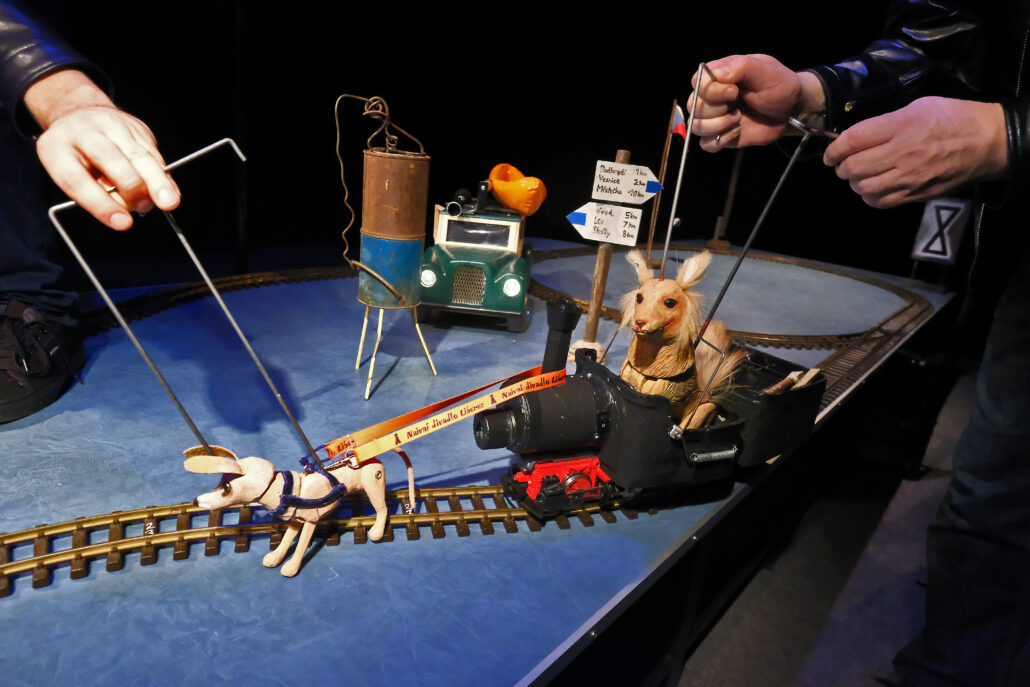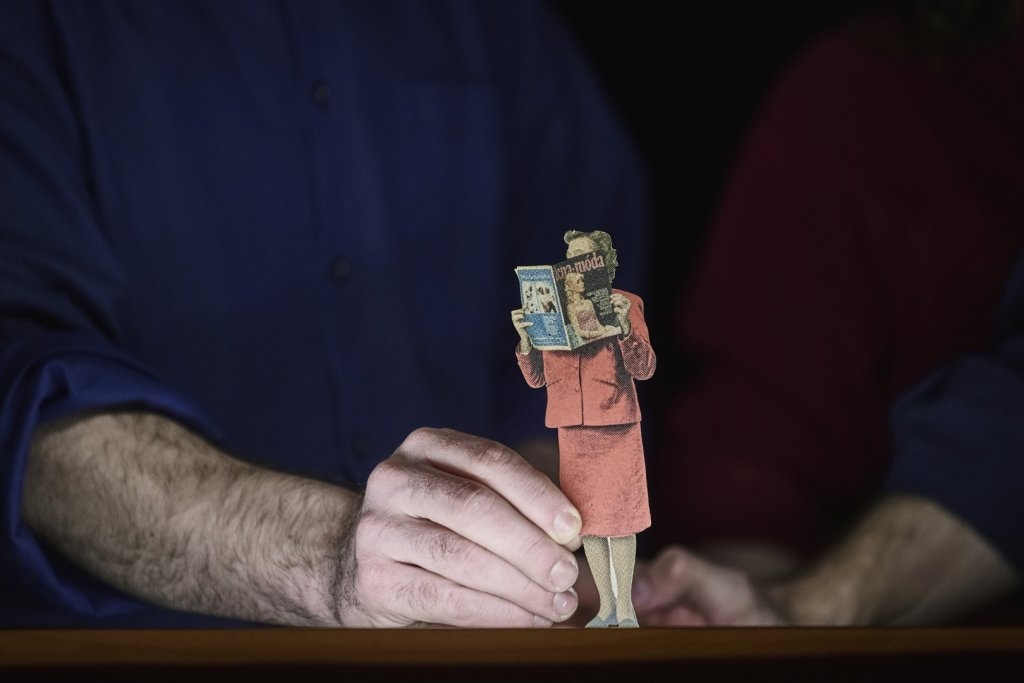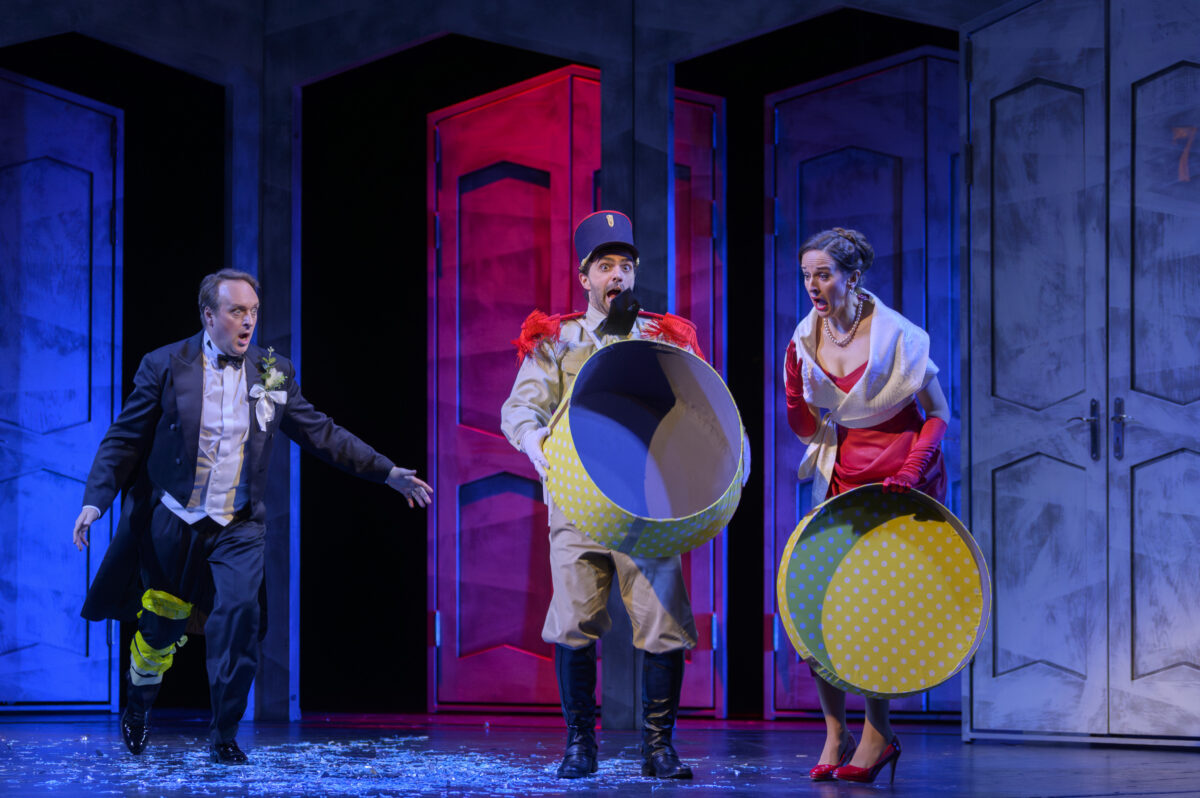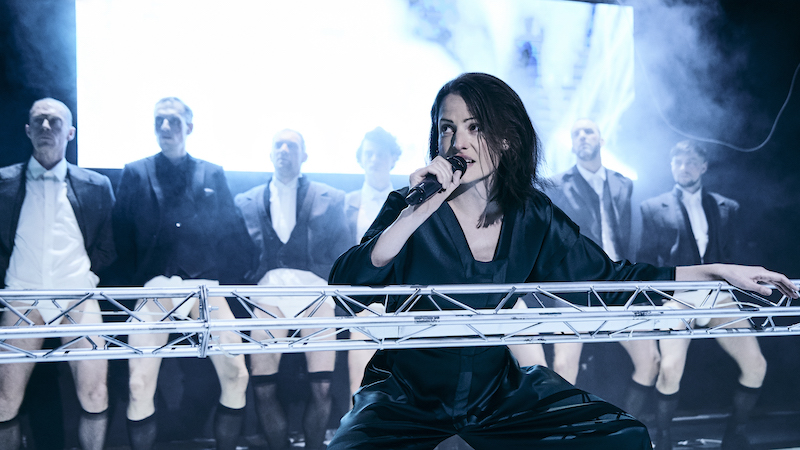Interview with VÍT PEŘINA
Tradition as a Space for Development and Experiment
VÍT PEŘINA is an established puppet theatre playwright with international productions to his credit (Slovakia, Poland) and dramaturg in residence at the Naïve Theatre in Liberec. Vít captivates audiences with his original puppet parodies, topical reworkings of classical fairy tales and dramatisations of proverbs and songs. As a playwright and dramaturg, he has won several awards at Czech and international puppetry festivals.
In this interview, Vít talks about why it is important to write for puppets, the influence of the Czech puppetry tradition, the perception of Czech puppetry abroad and what Czech puppet theatres have in common.
You are one of the few Czech playwrights who writes for puppet theatre. Lately, Czech puppeteers have been drawn to working collectively in their approach to text. Why do you think it is important to continue writing texts for puppets?
True, we’re seeing an increased number of productions — and not only in puppet
theatre — where the creative team collaborates on the text during the rehearsal period. Even though it often leads to something beautiful and I, as a dramaturg, thoroughly enjoy being part of such processes, it inevitably leads to fewer well-made plays being written. Original plays that are well crafted at the developmental stage, contain surprising twists, have something to say and give the actors stimulating opportunities. They have linguistic and stylistic qualities that are difficult to achieve in a collective of five authors.
Without good quality puppetry-focused text (which may of course be a play with absolutely no words), it is very difficult to create truly good puppet theatre. Without it, what you might get is an atmospheric “hullabaloo”, an exhibition of the form, or puppets that have nothing to perform. It may also be the case the what the puppeteer is doing needs just a few tweaks to become a straight play instead. The audience might not realise any of these things that I’ve mentioned, but they will still subconsciously feel that something’s not quite right. So yes, it’s still important to write for puppet theatre. Without a playtext, it will not be of high quality; and without quality, there is no reason for it to exist.
Czech puppetry has a rich tradition and a long history. You could say it is part of our “family silver”. It is even on UNESCO’s Representative List of the Intangible Cultural Heritage of Humanity. Even so, puppetry is evolving dynamically, often moving away from traditional methods based on illusion and figurative puppetry to object-based methods, reminiscent of a theatrical installations. Your work, however dramaturgically innovative, has been closer to figurative puppetry and connection, to a certain extent, to traditional puppetry craft. What does tradition mean to you? And how do you view the current experimental movement in puppetry?
Tradition itself absolutely a necessary base. These are the roots I work with and the knowledge I benefit from. I can define myself in relation to it, develop my practice and also experiment, of course. By so doing, I can create theatre that is alive and innovative, whether it’s a marionette walking and talking in a booth or a piece of cork bobbing along in a washbowl. With a bit of luck and enough artistry, both can be utterly charming, or an utter shambles.

You are the resident dramaturg and playwright at the Naïve Theatre in Liberec, a well-known puppet theatre with a historical international reach that continues to the present. How is Czech puppet theatre received outside of Europe? Should Czech puppetry influence the global scene in more tangible ways?
We enjoy a big advantage that, paradoxically, stems from the remnants of the communist era. I mean that we have a network of professional public puppet theatres. They don’t have this in the West and so their festivals are full of productions for one, or a maximum of two actors, with a set you can fit into the boot of your car. Theatre-making in this format has its limits and that can be difficult to overcome. So when you go there with our puppet theatre featuring several puppeteers and complex scenography, it can get a big reaction – provided it is well-made and well-translated. Audiences abroad also often don’t realise they can go see the high-quality puppet theatre for small children that we offer. I had the opportunity to travel to the United States and there, for instance, puppet theatre is primarily made for adults. Puppet theatre for children is regarded as something of a sideline. So, when they see a Czech puppet theatre production, they are in awe. This is perhaps where we could influence puppetry abroad. Because puppet theatre ought to be a great experience for everyone.
As well as working at the Naïve Theatre, you work in other theatres (ALFA Theatre Pilsen, Puppet Theatre Ostrava, DRAK Theatre Hradec Králové). Is there a common denominator — either positive or negative — to Czech puppet theatre institutions?
What is key here is the theatre’s role as the first cultural experience that children regularly attend in an organised way, provided they live within reasonable distance of a puppet theatre. Without an accessible network of public theatres like these, children might get the chance to attend solo touring productions or productions by small, independent touring groups in cultural centres, but, in many cases, they would already have seen the same productions when they were in nursery schools. Such productions are also limited in scale. Another important role played by the large public puppet theatres lies in providing space for many of the talented artists and actors graduating from the Department of Alternative and Puppet Theatre at the Theatre Faculty of the Academy of Performing Arts in Prague or other institutions. Finally, these theatres have the means and the capacity to preserve the living tradition of Czech puppetry, while bearing in mind that they must also continue to experiment.
categories
Interview / Puppet Theatre

 Learn
Learn






